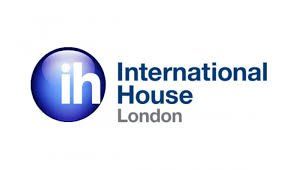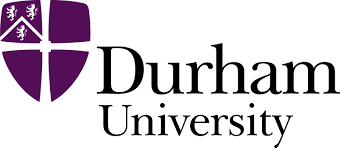
Certificate in Fire Protection Preparatory Program – Advanced Workshop
Course ID: 2507140101118EGI
Course Dates : 14/07/25 Course Duration : 5 Studying Day/s Course Location: London, UK
Language: Bilingual
Course Category: Professional and CPD Training Programs
Course Subcategories: Health, Safety and Risk Management
Course Certified By: * Projacs Academy
* Professional Training and CPD Programs
Certification Will Be Issued From :
KSA
Course Fees: £4,838.34
Vat Not Included in the price. VAT may vary depending on the country where the course or workshop is held.
Click to Pay
Date has passed please contact us Sales@e-s-hub.com
Course Information
Introduction
Fire protection is a critical discipline that intersects safety, engineering, and risk management, playing an indispensable role in safeguarding lives, property, and the environment. The increasing complexity of modern infrastructure, coupled with evolving regulatory frameworks, underscores the need for advanced expertise in fire safety systems. For professionals operating in industries such as construction, oil and gas, manufacturing, and public safety, understanding fire dynamics, prevention strategies, and emergency response protocols is not merely optional—it is imperative. This course addresses the pressing demand for specialized knowledge by equipping participants with the tools to design, implement, and evaluate comprehensive fire protection measures.
Despite advancements in technology and safety standards, gaps persist in the practical application of fire protection principles. A notable challenge lies in aligning theoretical knowledge with real-world scenarios, where unpredictable variables often complicate decision-making. For instance, the 2017 Grenfell Tower tragedy highlighted systemic failures in fire safety compliance and communication, emphasizing the consequences of inadequate preparation. By bridging these gaps, this workshop empowers participants to anticipate risks, mitigate hazards, and ensure compliance with international standards such as NFPA (National Fire Protection Association) codes and ISO guidelines.
The benefits of mastering fire protection extend beyond individual career advancement. Organizations that invest in robust fire safety training experience reduced liability, enhanced operational continuity, and improved stakeholder trust. Employees trained in advanced fire protection techniques contribute to creating safer work environments, which translates into fewer accidents, lower insurance premiums, and a stronger organizational reputation. Moreover, the course draws on established frameworks like the Hierarchy of Controls and the Swiss Cheese Model to provide a structured approach to hazard mitigation, ensuring participants are equipped with evidence-based strategies.
Real-world applications of fire protection principles abound across industries. Consider the case of a multinational chemical plant that implemented a layered fire safety system after attending a similar program. By integrating early detection technologies, evacuation drills, and suppression systems, the facility reduced incident response times by 40% and avoided costly downtime during a minor fire outbreak. Such examples underscore the tangible impact of proactive fire safety measures. Participants in this workshop will engage with similar case studies to contextualize their learning and apply it effectively in their professional settings.
This course also reflects emerging trends in fire protection, including the integration of smart technologies, predictive analytics, and sustainable practices. The rise of IoT-enabled devices, for example, has revolutionized fire detection and monitoring, enabling real-time data collection and analysis. However, the adoption of such innovations requires a nuanced understanding of both technical specifications and regulatory requirements. By addressing these developments, the workshop ensures participants remain at the forefront of industry advancements while maintaining compliance with legal and ethical standards.
Ultimately, the Certificate in Fire Protection Preparatory Program – Advanced Workshop is designed to empower professionals with the skills and confidence to tackle complex challenges in fire safety. Whether you are a seasoned practitioner seeking to refine your expertise or a newcomer eager to build a strong foundation, this course offers a transformative learning experience. Through a blend of theoretical insights, hands-on exercises, and collaborative discussions, participants will emerge equipped to make meaningful contributions to their organizations and communities.
Objectives
By attending this course, participants will be able to:
Analyze fire behavior and dynamics to identify potential hazards in diverse environments.
Evaluate existing fire protection systems and recommend improvements based on industry standards.
Design comprehensive fire safety plans that integrate detection, suppression, and evacuation strategies.
Apply regulatory frameworks and compliance requirements to ensure adherence to local and international codes.
Implement advanced technologies, such as IoT and predictive analytics, to enhance fire safety outcomes.
Develop effective communication protocols for emergency response teams and stakeholders.
Synthesize lessons from case studies to propose innovative solutions for fire risk management.
Who Should Attend?
This course is ideal for:
Fire safety engineers, risk managers, and safety officers responsible for implementing fire protection measures.
Architects and construction professionals tasked with designing fire-resistant structures.
Facility managers overseeing industrial, commercial, or residential properties.
Emergency responders and public safety officials seeking to enhance their preparedness.
These groups will find the course invaluable due to its focus on practical applications, regulatory updates, and advanced methodologies. While prior foundational knowledge of fire safety is beneficial, the course is structured to accommodate intermediate learners who wish to deepen their expertise and apply advanced concepts in their roles.
Training Method
• Pre-assessment
• Live group instruction
• Use of real-world examples, case studies and exercises
• Interactive participation and discussion
• Power point presentation, LCD and flip chart
• Group activities and tests
• Each participant receives a 7” Tablet containing a copy of the presentation, slides and handouts
• Post-assessment
Program Support
This program is supported by:
* Interactive discussions
* Role-play
* Case studies and highlight the techniques available to the participants.
Daily Agenda
The course agenda will be as follows:
• Technical Session 08.30-10.00 am
• Coffee Break 10.00-10.15 am
• Technical Session 10.15-12.15 noon
• Coffee Break 12.15-12.45 pm
• Technical Session 12.45-02.30 pm
• Course Ends 02.30 pm
Course Outlines
Fundamentals of Fire Safety
Introduction to fire dynamics and combustion principles
Classification of fires and corresponding extinguishing agents
Overview of NFPA codes and international fire safety standards
Risk assessment methodologies and hazard identification
Day 2:
Fire Detection and Suppression Systems
Types and applications of fire detection technologies
Design and installation of sprinkler systems and foam suppression
Integration of IoT-enabled devices for real-time monitoring
Maintenance and testing protocols for fire safety equipment
Day 3:
Emergency Preparedness and Response
Development of evacuation plans and emergency procedures
Role of communication systems in crisis management
Coordination with first responders and external agencies
Conducting fire drills and evaluating their effectiveness
Day 4:
Regulatory Compliance and Legal Frameworks
Understanding local and international fire safety regulations
Documentation requirements for compliance audits
Case studies on legal implications of non-compliance
Updates on recent amendments to fire safety codes
Day 5:
Emerging Trends and Practical Applications
Application of predictive analytics in fire risk management
Sustainable practices in fire protection design
Lessons from global case studies and best practices
Group project: Developing a fire safety plan for a hypothetical facility



















































